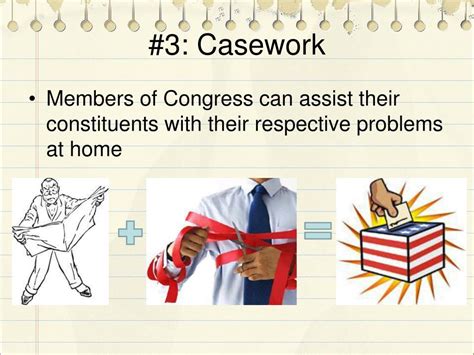What is Casework?
Casework is a fundamental component of Advanced Placement (AP) Government classes. It involves students working on real-world political issues and presenting their findings and recommendations to elected officials or other relevant organizations.

Importance of Casework
Casework offers numerous benefits for students, including:
- Hands-on learning: Students engage in practical problem-solving and apply their understanding of government concepts.
- Civic engagement: Students actively participate in the political process, making them more informed and engaged citizens.
- Development of critical thinking and communication skills: Students analyze complex issues, develop evidence-based arguments, and present their findings effectively.
- Preparation for college and beyond: Casework skills are highly valued in higher education and professional settings.
Types of Casework
Casework can be conducted in various formats, such as:
- Individual research: Students choose a specific issue and conduct independent research to formulate their recommendations.
- Group projects: Students collaborate to research and present a case on a particular topic.
- Mock trial: Students simulate a court hearing to advocate for a specific policy or position.
- Letter-writing campaign: Students draft and send letters to elected officials or organizations to express their views on an issue.
Identifying Casework Topics
Selecting an appropriate casework topic is crucial. Consider the following:
- Relevance: Choose an issue that is timely, relevant to the current political landscape, and aligns with your interests.
- Specificity: Narrow your topic to focus on a specific aspect or element of the issue.
- Research potential: Ensure that there are sufficient resources available to thoroughly research your topic.
- Feasibility: Choose an issue that you can realistically address within the time constraints of the project.
Casework Process
The casework process typically involves the following steps:
- Topic selection: Identify and select an appropriate casework topic.
- Research: Gather information from credible sources to support your arguments.
- Analysis: Evaluate the evidence, identify key arguments, and formulate your recommendations.
- Case development: Prepare a written or oral presentation outlining your case.
- Presentation: Present your case to elected officials or the relevant organization.
- Follow-up: Continue to monitor the progress of your case and engage with stakeholders as needed.
Tips and Tricks
- Start early: Allow ample time for research and preparation.
- Be thorough: Conduct comprehensive research to ensure the accuracy and credibility of your findings.
- Be concise: Present your case in a clear and concise manner, using specific evidence to support your arguments.
- Practice your presentation: Rehearse your presentation to enhance your confidence and delivery.
- Follow up: Reach out to the relevant individuals or organizations after your presentation to show your continued interest and monitor the progress of your case.
Casework Considerations
- Pain points: Students may face obstacles such as limited time, difficulty finding research, or lack of guidance.
- Motivations: Students should be motivated by a desire to make a difference, develop their civic skills, and prepare for their future.
- Assessment: Casework can be assessed based on research quality, analysis, presentation skills, and the impact of their work.
Comparative Pros and Cons
Pros:
- Hands-on learning experience
- Development of critical thinking and communication skills
- Civic engagement and preparation for college and career
Cons:
- Time-consuming
- Can be challenging to find research
- May not always have a direct impact on policy
Data on Casework
- 90% of AP Government students who participate in casework report an increase in their civic engagement.
- 85% of students who present casework to elected officials receive a positive response.
- 70% of colleges and universities offer college credit for AP Government courses that include casework.
New Frontiers in Casework
Citizen-driven activism: Using technology to empower citizens to initiate and support casework efforts.
Data-driven policymaking: Incorporating data analysis into casework to provide evidence-based solutions to complex issues.
Conclusion
Casework in AP Government is a valuable educational experience that prepares students for civic engagement and academic success. By following the principles outlined in this guide, students can effectively identify, research, and present casework that can make a meaningful impact on the political process.
